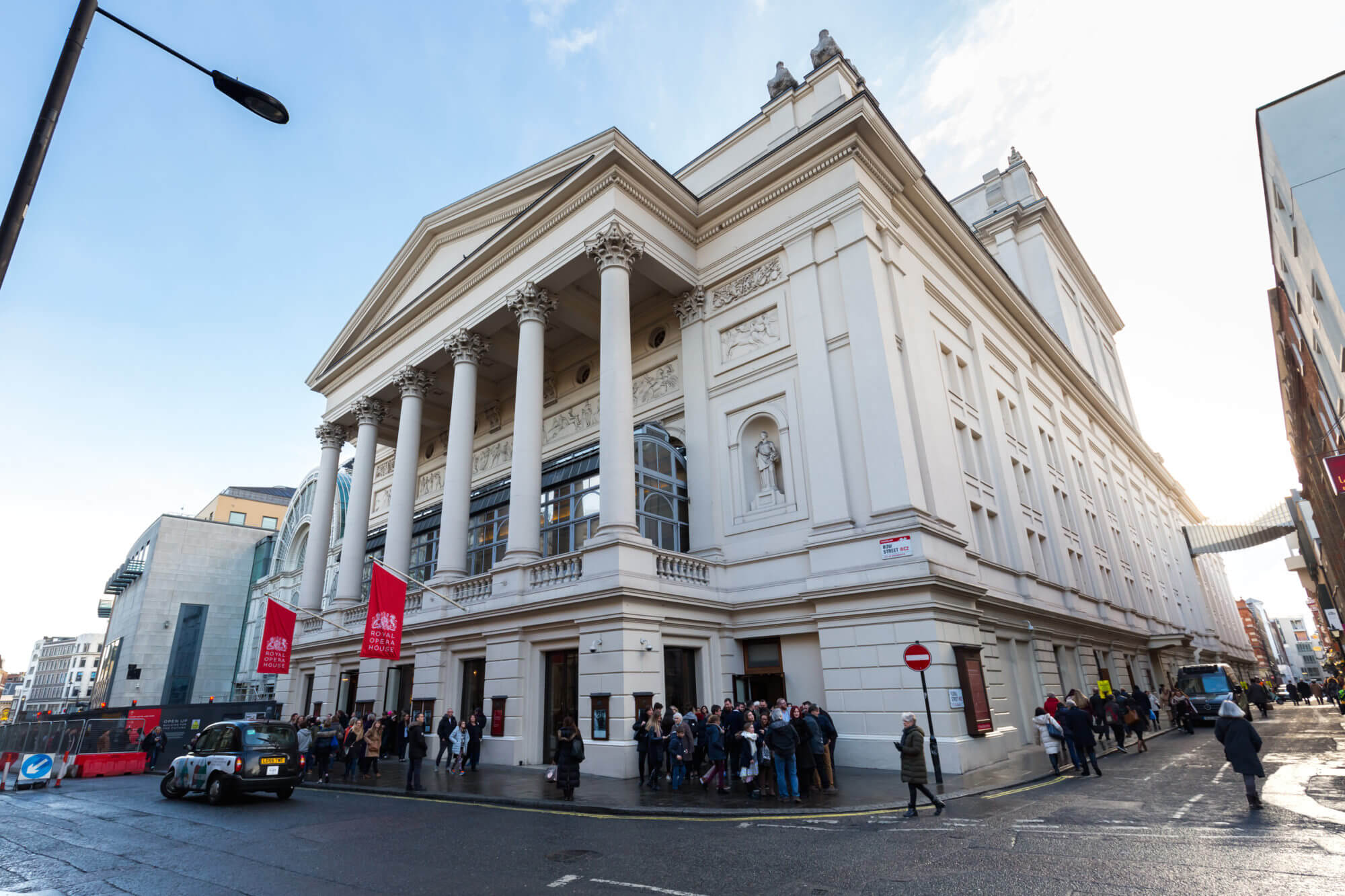Lots of outrage was sparked this week when it was revealed that tickets to the highly-sought-after performance of La Forza Del Destino at the Royal Opera were selling for as much as £3,435 each on the ticket re-selling site, Viagogo. Tickets with a cover price of around £125.
The demand for seats at London’s operatic event of the year means that only 100 seats for each performance over the four nights it is running (8% of the auditorium) have been available for sale to the public. Viagogo is the only option for anyone who missed out on those.
While the opera house prohibits its members and others lucky enough to bag tickets in the first run from re-selling them, it is, in fact, a practice that is impossible to police.
Ticket resellers are effectively making a killing on the back of the taxpayer.
Alex Beard, the Royal Opera House’s chief executive, proclaimed himself “spectacularly cross” that such profiteering goes on. But unless people buying the tickets come forward to complain about being ripped off (at which point they would be barred from entry – double whammy), there isn’t much he can do about it.
What’s interesting in this case is that the Royal Opera House receives £24 million a year in public subsidies, so ticket resellers are effectively making a killing on the back of the taxpayer.
This may be nothing new, but it seems strange that a similar level of outrage is rarely aimed at other instances of near-profiteering.
Take private rentals, for instance. According to the most recent report from the Office for Budget Responsibility, Government paid out nearly £22 billion in housing benefit in the year 2017/18.
The same level is predicted for the current year. The Government’s own website says “Housing Benefit can help you pay your rent if you’re unemployed, on a low income or claiming benefits.” – i.e. it is a subsidy paid to private landlords who charge rent which an awful lot of people cannot afford.
Let’s have a look at the figures.
Despite stagnant wage growth in the UK for the past few years, the cost of renting property has continued to rise. The latest Homelet Rental Index data (December 2018) shows that average rents across the UK rose by 1.5% in December, compared to the same month the previous year, with the average monthly rent now £921.
That’s a little north of £11,000 per year. Out of your taxed income.
Is it time for rent controls? Other countries do it – even turbo-libertarian economies like the US.
According to the Office for National Statistics, the average salary in the UK last year was just over £27,000 – after tax, that is £21,700-ish (handy calculator at income-tax.co.uk). Anyone can see that £11,000 is a sizeable chunk of this, regardless of whether you are eligible for government assistance.
The average house price in 2018 was £226,000, so for a private landlord starting from scratch right now, that provides an annual yield of more than 5% – nice if you can get it.
Of course landlords who bought at lower prices in previous years will be earning even more.
So what is the answer? Accept that a free market means landlords can charge what they like while the taxpayer pays their mortgages? Well, free markets depend on supply and demand which might be disrupted without the Government subsidy.
Abolish private housing altogether? A tad extreme for the taste of your average Brit, I suspect.
Or bring in some middle ground in the form of rent control? Other countries do it – even turbo-libertarian economies like the US.
So why don’t we?













The real culprit is Government policy. Council Housing was sold off to tenants and neither Conservative , Labour or Conservative/Liberal Coalitions have done nearly enough to provide adequate levels of social housing. Similarly the Planning system and the stranglehold of a small number of volume builders on supply means that we are building far too few new homes. It is the lack of supply of rented homes and homes to buy in areas of demand that determine rents.Most private landlords only own one property (I am one, renting out my late mother’s flat). I now get no tax relief on loan interest and, were I to wish to buy another (I don’t as I couldn’t afford to), not only would I have to pay LBTT (successor to Stamp Duty in Scotland) but another 4% in Additional Dwelling Tax.
An average 5% gross return ignores the cost of any maintenance, a sinking fund for building repairs, boiler maintenance, annual gas boiler tests and pat electrical tests. There are also the costs of Landlord Registration in my Local Authority.
The income, in my situation and many others, is my pension. Because of the tax changes, I hear that many landlords have decided to sell, tightening the supply further. Rent controls may help those who are lucky enough to have a home to rent, but will further and I think sharply, curtail the supply. In areas with tourist demand, significant numbers of landlords have been changing to holiday lets to boost income. So, in my view, focussing on taxing landlords more or rent controls is just cynical window-dressing by governments whose housing policies have totally failed ordinary people’s need to have an affordable roof over their head in places where they want to stay,
Sorry that opera example is not relevant.
I have been a landlord (and Tennant living away), I bought a terraced house when I was forced to move away for work, it more or less bankrupted me. I bought at the top of the market, remember the landlord is taking the risk. For the privilege of housing the local populace for 10 years, I paid out a net 30k.
What I mean is after selling I worked out that I would have been 30k better off doing nothing. And my word I didn’t do nothing,10 years of sleepless nights, stress and spending! Hiring a skip after each tenancy occured more than once and then sometimes weeks of work.
5% yield is pathetic for all that, no way would I ever do it again.
The reason the council will not build council houses is that they do not want to get their hands dirty dealing with this stuff. They want to be seen as the good guys, they couldn’t cut corners like a private landlords have to, so they quite like the system as it stands.
Yes big efficient corporations can make money, but my god do they have to be efficient, again something the council are not prepared to do.
An interesting but inaccurate article!
Firstly the rental yield on a £226,000 house at £921 pcm is 4.89% which is LESS than 5%.
Secondly lenders impose a stress test on landlords that insist that the rental cover must exceed 145% of the mortgage at 5.5% interest. While these figures may be unrealistic, those are what the lenders use.
Thus for a property valued at £226,000, a Buy To Let mortgage would not be approved if the rental was not at least £1127 pcm.
A better more informed article would ask why these limits are set and by whom. But its easier to demonise landlords rather than the politicians/financiers who set the policies.